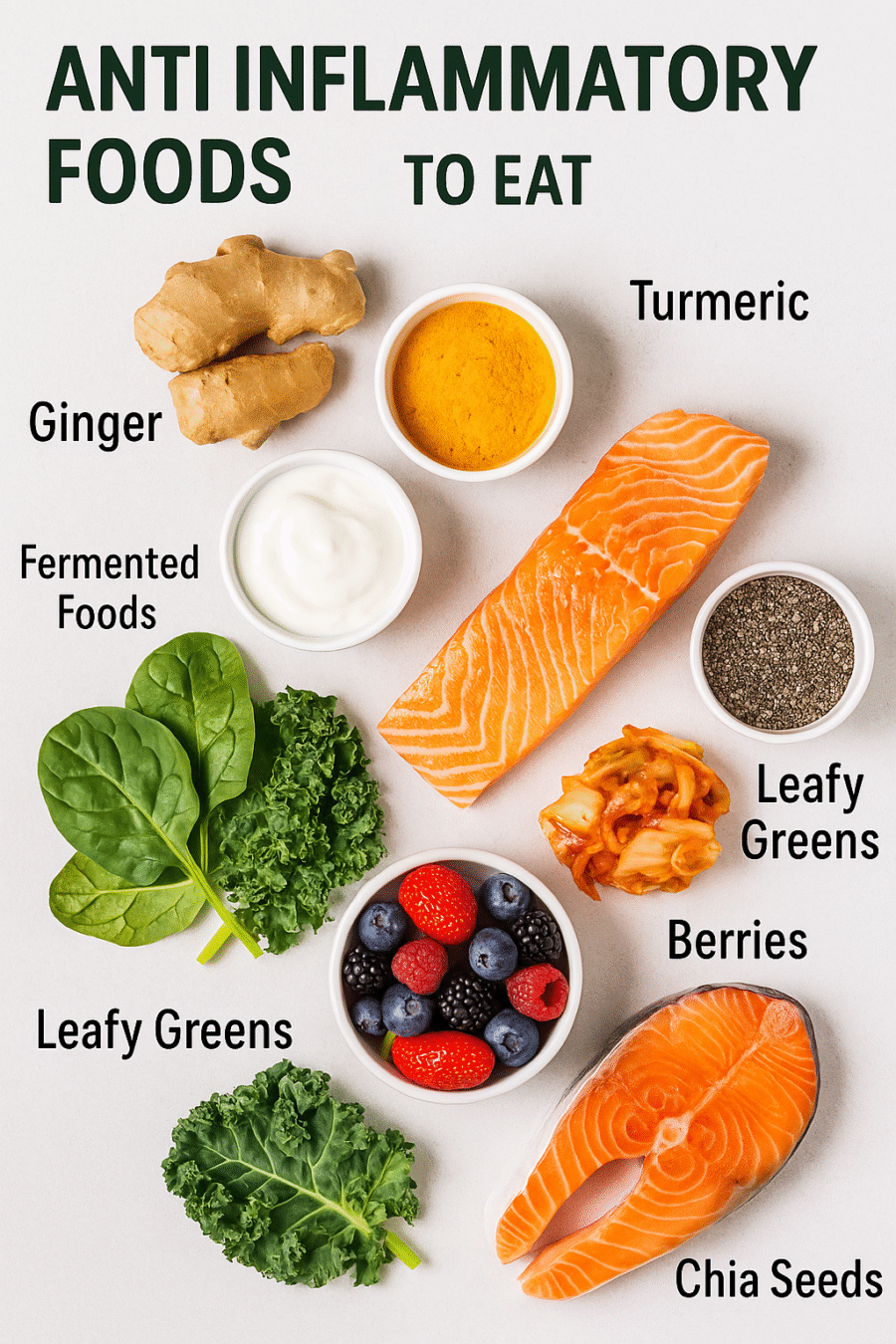Mental Health Benefits Tips: 5 Ways to Boost Wellbeing
Introduction
Introduction: Your Mental Health Deserves Daily Attention
Be honest how often do you check in on your mental health?
Not just the surface stuff, like “I’m tired” or “work is a lot lately,” but how you’re really doing inside. Your thoughts, your emotions, your energy. We often brush it off, thinking, “I’m just busy,” or “It’ll pass.” But if you’ve been feeling mentally drained, anxious, unfocused or just a little off you’re definitely not alone.
The truth is, mental health is a huge part of overall health, even though it doesn’t always get the attention it deserves. And you don’t need to wait for a breakdown or burnout to start taking care of it. In fact, small, simple daily habits can make a massive difference in how you feel, think, and show up in your life.
That’s what this article is all about. I’m not here to give you a long lecture or overwhelm you with complicated techniques. Just five practical, gentle, and science-backed tips that can help you feel better mentally and emotionally. These aren’t quick fixes, but they are real, doable changes that build up over time.
Whether you’re looking for ways to manage stress, find more balance, sleep better, or simply feel more like yourself again, you’re in the right place. You don’t have to do it all at once. Just start with what feels doable for you right now.
Let’s take a breath, slow down for a moment, and dive into these simple ways to care for your mental wellbeing because you truly deserve it.
1. Embrace Mindfulness Meditation
In today’s hyper-connected world, our minds rarely get a break. We’re constantly bombarded with information, tasks, notifications, and noise. That’s where mindfulness meditation comes in.
Mindfulness is the practice of being fully present in the moment. It sounds simple but in reality, it takes practice. You learn to observe your thoughts without judgment, rather than getting carried away by them.
What Makes Mindfulness So Powerful?
Scientific studies have shown that even brief mindfulness sessions can reduce symptoms of anxiety, depression, and chronic stress. It works by calming the nervous system and helping you regulate your emotions.
Real-Life Benefits:
- Reduces negative thought loops and mental fatigue
- Helps manage anxiety by anchoring you in the present
- Improves your ability to concentrate and make decisions
- Promotes emotional resilience over time
Try This: A Simple 5-Minute Breathing Exercise
- Sit comfortably, close your eyes, and take a deep breath.
- Inhale slowly through your nose for four seconds.
- Exhale gently through your mouth for six seconds.
- Focus only on your breath. When your mind wanders—which it will—gently return to your breath.
- Repeat for five minutes.
If your thoughts are racing, that’s okay. The goal isn’t to stop thinking—it’s to notice without reacting.
Getting Started Without Overwhelm
New to meditation? Don’t worry. Start with just two minutes a day. Use free apps like Insight Timer, Smiling Mind, or UCLA Mindful to guide you. Over time, you’ll build a habit that truly shifts how you handle stress.
2. Move Your Body Even a Little Bit Helps
Many of us think of exercise as a chore a way to lose weight or stay in shape. But beyond the physical, movement is one of the most underrated mental health tools we have.
When you move your body, your brain releases endorphins chemicals that make you feel good. It also boosts serotonin and dopamine, both critical for emotional balance and motivation.
Why Exercise Is a Natural Mood Booster:
- Enhances your brain’s ability to handle stress
- Improves sleep quality and energy levels
- Supports brain function and memory
- Acts as a natural antidepressant
You Don’t Need a Gym Membership
Not everyone loves cardio or lifting weights and that’s perfectly okay. The key is to find movement that brings you joy.
Here are some great options:
- A 20-minute walk in nature
- Gentle yoga or tai chi in your living room
- Dancing around the house to your favorite playlist
- Light stretching to break up long work hours
How Often Should You Move?
Aim for 30 minutes, three to five days a week. But if that feels overwhelming, remember this: Any movement counts. Even 10 minutes can lift your mood and break the cycle of mental fatigue.
Start small. Celebrate every step. The goal is consistency, not perfection.
3. Prioritize Your Sleep Like It’s Medicine
We live in a culture that glorifies being busy and “hustling” through exhaustion. But without enough quality sleep, your mind can’t function properly no matter how motivated you are.
Sleep affects everything from your mood and memory to your immune system and hormone levels.
How Sleep and Mental Health Are Connected
- Chronic sleep deprivation increases anxiety, irritability, and mood swings
- Deep sleep allows your brain to process stress and emotional experiences
- Poor sleep affects decision-making, focus, and patience
- Long-term lack of sleep is linked to depression and burnout
Signs Your Sleep May Be Impacting Your Mental Health
- Waking up tired even after 7-8 hours
- Difficulty concentrating during the day
- Feeling emotionally reactive or numb
- Trouble falling or staying asleep
Tips to Improve Sleep Naturally
- Go to bed and wake up at the same time every day—even on weekends
- Make your bedroom cool, dark, and quiet
- Avoid caffeine or heavy meals at night
- Shut off screens at least one hour before bed
- Try a relaxing bedtime ritual, like reading, herbal tea, or mindfulness
Sleep is not a luxury it’s a foundation. Treat it like the vital reset button it is.
4. Foster Meaningful Connections
In a world where we can connect with thousands of people online, many of us still feel painfully lonely.
Why? Because what we really crave isn’t more followers it’s authentic, meaningful connection.
As social creatures, humans are wired for interaction. Having even one person you trust and can talk to can significantly improve your mental wellbeing.
The Mental Health Benefits of Connection
- Reduces stress and feelings of isolation
- Boosts your sense of belonging and purpose
- Provides emotional support during difficult times
- Encourages healthier habits through social accountability
Simple Ways to Strengthen Social Bonds
- Call a friend you haven’t spoken to in a while
- Make plans for a walk, coffee, or lunch even short visits matter
- Join a local class, book club, or fitness group
- Volunteer for a cause that matters to you
- Be open about your feelings vulnerability builds real trust
What If You Feel Too Drained to Socialize?
Start small. A smile or short chat with a coworker or neighbor can lift your mood. And if you’re struggling emotionally, don’t hesitate to reach out to a therapist, support group, or mental health hotline. Connection comes in many forms.
5. Reduce Digital Overload for a Clearer Mind
We all know the feeling: you sit down to check one thing on your phone… and an hour later, you’re scrolling, comparing, and feeling worse than before.
Excessive screen time especially on social media can drain your energy, disrupt your focus, and negatively impact your self-esteem.
Why Digital Overload Is Harmful
- Increases stress, comparison, and feelings of inadequacy
- Contributes to information fatigue and decision paralysis
- Disrupts sleep and circadian rhythm
- Encourages mindless habits that reduce creativity and mindfulness
How to Set Healthy Digital Boundaries
- Set daily limits on social media apps
- Turn off non-essential notifications
- Create “screen-free” zones in your home (like the bedroom or dining area)
- Replace screen time with relaxing hobbies like drawing, cooking, journaling, or going outside
- Do a “digital detox” one day a week, or even just an hour each night
You don’t have to give up technology entirely just use it more intentionally. The goal isn’t to disconnect from the world, but to reconnect with yourself.
Conclusion: Start Small, Stay Consistent, Feel the Shift
Improving your mental health doesn’t mean transforming your life overnight. It’s about making small, intentional choices each day that support your wellbeing.
To recap, here are the five strategies that can help you feel more grounded and balanced:
- Mindfulness meditation to calm your mind
- Daily movement to lift your mood and energy
- Better sleep habits to reset and restore
- Authentic social connection to feel supported
- Less screen time to reduce overwhelm and regain clarity
You don’t need to do all five at once. Choose one that resonates with you and give it a try. As you begin to notice the benefits, you may feel inspired to add another.
Mental health is a journey—not a destination. Be patient with yourself, and remember: even the smallest changes can lead to powerful results over time.
Would you like me to turn this into a downloadable PDF, include scientific references, or format it for your blog’s CMS?




Laisser un commentaire